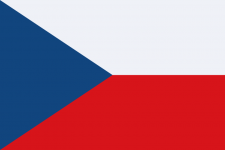
The ninth part of research series The Voice of Ukrainians in the Czech Republic follows on from research carried out in 2022, which focused on employment, housing and poverty for Ukrainian refugees in the Czech Republic. The findings presented in this report are based on a survey conducted in February and March 2023 on a representative sample of 3 802 refugees. The document summarises the key findings of the research and formulates related recommendations for policy makers.
Image source: PAQ Research 2023
Key findings
Work and language
More than 60% of refugees of economically active age are working, with a slight increase in the proportion of workers employed remotely in Ukraine (20%) compared with December 2022. 14% of refugees work part-time or on a casual basis, and the share of employed refugees is therefore stagnating. The report finds that there appear to be barriers preventing 40% of refugees from entering the labour market.
Half of the refugees in the country are in low-paid unskilled jobs, and two-thirds of refugees are working below their qualification level. The skills of refugees therefore continue to be 'untapped', says the report.
The most important factor for labour market attachment is language proficiency. The proportion of people from Ukraine with knowledge of Czech is steadily increasing, and approximately one third of refugees attend language courses on a long-term basis. A lack of money and free time were found to be the main barriers to participation in such courses.
Housing
40% of refugees live in rented accommodation. The shift from emergency/mass accommodation to residential housing has almost halted: 23% of refugees are currently living in hostels and hotels, which is the same proportion as in June 2022. Employed refugees living in Prague were found to have the highest chance of finding rental accommodation.
Income and poverty
Two-thirds of refugees from Ukraine in the Czech Republic are below the income poverty line, with seniors and families with children most at risk. The proportion of households receiving humanitarian benefits has declined slightly since the last survey, and the proportion of households with income from work has increased. 29% of refugees receive some form of financial assistance from Ukraine. The share of people suffering from material deprivation has also slightly decreased (78% in March, compared with 83% in December 2022). By contrast, the rate of material deprivation among Czech citizens was 5% in 2022. 76% of refugees cannot afford to engage in paid leisure activities.
On the mental wellbeing indicator, refugees score significantly lower than Czechs: 42% vs 62%. Women and people without jobs were found to suffer more.
Details
- Authors
- Martina Kavanová, Lucie Marková, Daniel Prokop
- Geographic area
- Czech Republic
- Contributor type
- Academics and experts
- Original source
- Posted by
